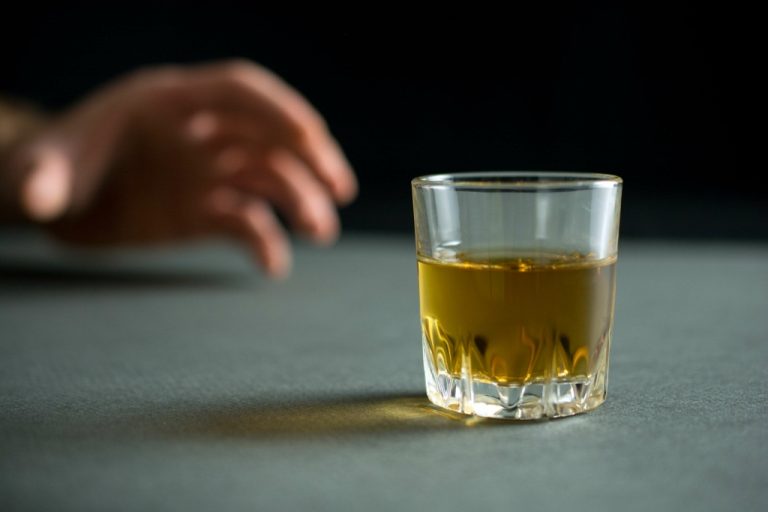If someone believes they have an alcohol allergy or intolerance, they should stop drinking alcoholic drinks and visit their healthcare provider for testing and advice. In some cases, over-the-counter or prescribed medications might help alleviate symptoms. The only way to avoid alcohol intolerance symptoms or an allergic reaction is to avoid alcohol or the particular beverage or ingredients that cause the problem. For a minor reaction, over-the-counter or prescription antihistamines may help reduce symptoms, such as itching or hives. However, antihistamines can’t treat a serious allergic reaction.

While just about anything can trigger an allergic reaction, some things (like a bee sting, peanuts, and certain foods) are more likely to trigger allergic reactions than others. No, histamine intolerance isn’t an allergy, even though it has some symptoms of allergic reactions. It’s sometimes called a “pseudoallergy” since it looks similar to an allergy but has a different cause. You may develop an allergy to some of the ingredients in alcoholic beverages that cause you to develop an alcohol intolerance. During alcohol metabolism, the enzyme alcohol dehydrogenase (ADH) converts alcohol to acetaldehyde, a toxic molecule. The resulting acetaldehyde is metabolized to nontoxic molecules by another enzyme called aldehyde dehydrogenase (ALDH).
How can you treat alcohol allergy?
They will apply a drop of allergen extract to the pricked or scratched area. Your skin’s reaction can help them learn if you have an allergy. If you develop symptoms after drinking alcohol, make an appointment with your doctor. Depending on your symptoms, they might refer you to an allergist for testing and treatment. An allergist is a special type of doctor that focuses on allergic conditions. Some people with Hodgkin’s lymphoma experience pain after drinking alcohol.
While research on post-COVID alcohol intolerance is still limited, anecdotal evidence suggests that it’s a symptom experienced by many people following the virus. Some evidence suggests that post-COVID-19 fatigue syndrome may share characteristics with ME/CFS, https://ecosoberhouse.com/ a condition where approximately 4 out of 5 people exhibit alcohol intolerance. Alcohol intolerance is a condition where the body reacts negatively to the consumption of alcohol. It’s typically related to an inability to properly process or metabolize alcohol.
Treatment
This prescription device has a concealed needle that injects a single dose of epinephrine when you press it against your thigh. Although alcohol intolerance usually isn’t a serious issue as long as you don’t drink alcohol, you might want to discuss it with your doctor at your next appointment. Here’s some information to help you get ready for your appointment. Even if you know alcohol makes you feel poorly, it can sometimes be hard to figure out the root cause of the problem. The main cause of alcohol intolerance is a problem with how the body breaks down alcohol. So, people are typically born with a tendency for alcohol intolerance, which also runs in groups of people who are more closely genetically related.
Or you may have an alcohol allergy, a stronger reaction that involves the immune system. Your healthcare provider will ask you about the symptoms and reactions that occur after you drink alcohol. In people with alcohol intolerance, a genetic mutation (change) makes ALDH2 less active or inactive. As a result, your body can’t convert acetaldehyde to acetic acid.
What’s the difference between alcohol allergy and alcohol intolerance?
If someone requires support with their alcohol use, they can speak with a doctor to discuss the recommended guidelines for alcohol intake.
Conversely, other recent data suggest a lower risk for dementia in people consuming a few alcoholic beverages a day. A much larger study of almost 4 million people in Korea noted that mild to moderate alcohol consumption was linked to a lower risk for dementia compared to non-drinking. It is important to make a distinction between an allergic reaction to some of the components of alcoholic beverages and a true alcohol allergy. cause of alcohol intolerance For individuals carrying gene variations that impair alcohol metabolism, the best way to prevent alcohol flush reaction is to avoid drinking or to limit alcohol intake. In fact, hindering alcohol flushing elevates the risk of cancer by enabling higher levels of alcohol consumption and thus higher acetaldehyde production. If you have a true alcohol allergy, the only way to avoid symptoms is to avoid alcohol entirely.
